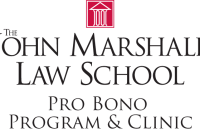 Has sexual harassment, gender or religious discrimination, occurred at your office? How do you investigate this serious misconduct? Well, look no further than Professors Kristi Nelson and Christine Dekker’s course, Workplace Misconduct: Conducting Investigations and Interviews. Attorneys Dekker and Nelson join forces to teach this two-credit hour class in the Fall semester, for which no prerequisites are required.
Has sexual harassment, gender or religious discrimination, occurred at your office? How do you investigate this serious misconduct? Well, look no further than Professors Kristi Nelson and Christine Dekker’s course, Workplace Misconduct: Conducting Investigations and Interviews. Attorneys Dekker and Nelson join forces to teach this two-credit hour class in the Fall semester, for which no prerequisites are required.
Professor Nelson said she “developed the course in order to teach students the skills needed to investigate workplace misconduct.” She has seen more and more companies hire lawyers to “conduct independent investigations when serious workplace misconduct allegations are made,” Prof. Nelson added. She stated she has investigated serious workplace misconduct for her corporate clients, such as sexual harassment, religious discrimination, gender discrimination, and other types of workplace disputes. From this experience, she has found that a “properly conducted investigation can root out serious problems in the workplace, improving overall working conditions and warding off expensive litigation and damage awards against an employer,” Professor Nelson explained.
The main goal of the course is to teach students the skills necessary to conduct an effective and independent investigation, with an emphasis on interviewing skills in an investigative role. While the course obviously focuses on workplace misconduct investigations and interviews, the skills developed can be used in any type of investigation. Students also learn confidentiality issues, challenges during the interview process, assessing credibility, and a vast array of other complications they will encounter and develop skills to handle those situations. Another aim is to teach students the skills to conduct (1) independent investigations, including how to determine when an investigation is necessary; (2) how to draft an investigative plan; (3) how to conduct interviews in an investigative role; and (4) how to draft investigation reports.
Even though Professors Nelson and Dekker assign readings from Lisa Guerin’s The Essential Guide to Workplace Investigations: How to Handle Employee Complaints and Problems every week and offer their insight through lectures, they also use a hands-on approach. From week five onwards, the professors either role-play for the students or they both perform in-class simulations. These simulations take the class from the complaint’s inception, drafting the interview outline and interviewing the complainant, to the conclusion, evaluating evidence, making a decision, and drafting the final investigation report.
The professors evaluate the students based on their performances in the : (1) final exam interview outlines and simulations valued at 40%; (2) written investigations report valued at 40%; and (3) weekly class participation and simulation exercises valued at 20%. The professors emphasized that attendance and participation are mandatory due to the interactive nature of the class.



